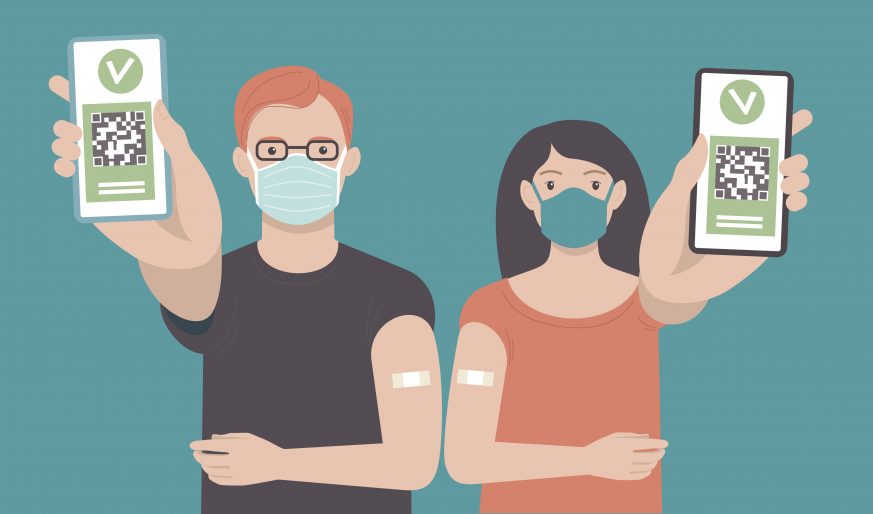Mandatory vaccination policies are currently top-of-mind among Canadian business owners, including those within the multi-residential housing sector. For landlords, it is highly recommended that the following two seperate policies are implemented to best protect residents and operations: 1) policies for employees, and 2) policies relating to the use of non-essential indoor amenities.
Part of a well-rounded risk management strategy, these distinct vaccination policies will enable landlords to better protect occupants and employees from the spread of COVID-19, while also lowering their liability risk.
Workplace policies
Many businesses, organizations, universities and colleges across Ontario have made similar announcements, or have released their policies requiring all employees, contractors and visitors to be vaccinated. Universities and colleges have also implemented policies requiring proof of vaccination for students living in on-campus housing. Any vaccination policy applying to employees must comply with the Occupational Health and Safety Act, the Ontario Human Rights Code and privacy laws.
In strongly recommending that all employers have a vaccination policy, Toronto Public Health identified minimum requirements that should be part of any vaccination policy:
- Workers to provide proof of vaccination series approved by Health Canada or the World Health Organization
- Unvaccinated employees to provide written proof of a medical reason from a physician or nurse practitioner that includes whether the reason is permanent or temporary
- Unvaccinated workers to complete a vaccination education course on the risks of being unvaccinated in the workplace
In addition to the above minimum requirements, it will be necessary for employers to consider what precautions or protections will be required for those who are unvaccinated in the workplace (PPE, submitting to regular COVID-19 testing, etc.).
These recent announcements and legislative directives have elevated the standard of care when it comes to employers’ obligations under health and safety legislation and are also important measures to facilitate the prompt and necessary vaccination against COVID-19 for all eligible Ontarians.
Indoor amenities
The provincial government has advised that, as of September 22, 2021, Ontarians will need to be fully vaccinated (i.e., two doses plus 14 days post-second vaccine) and will need to provide their proof of vaccination along with photo ID in order to access certain public settings and facilities.
Though the text of the proposed regulation has not yet been published, the government has confirmed to industry associations that apartment buildings and condominiums will not be considered public settings or facilities for the purposes of the government’s vaccination requirement.
Having said that, apartment buildings and condominium corporations may still want to implement their own vaccination rules and policies with respect to the safe use of their non-essential amenities. Multi-residential landlords and condominium boards will need to consider a number of factors in deciding whether to implement rules, and the form of those rules, including:
- liability for failing to take steps;
- financial considerations;
- how the rule will be implemented (e.g. self-reporting, controlled access system, etc.);
- and, the physical aspects of their particular buildings.
It is strongly recommended that any vaccination policy for indoor spaces clearly distinguish between “essential” indoor spaces (e.g. garbage rooms, mailroom, laundry facilities) and “non-essential” indoor spaces (e.g. pool, gym, lounge area). Landlords should also consider how they will accommodate individuals who cannot get vaccinated on the basis of a prohibited ground of discrimination (e.g., a disability or a religious objection to vaccination).
Privacy considerations
Finally, it is important to remember that any vaccination policy must comply with applicable privacy laws. Privacy considerations should be explicitly included in each policy by providing information about how someone’s vaccination status will be collected, used, and how long the information will be retained. Generally, organizations should consider ways to limit the information that they collect and how long that information is retained.
Landlords and condominium boards should consult with their legal counsel in deciding whether to implement a policy or rule with respect to their workplaces and amenity areas; to discuss what the contents of any rules or policies will be; and how the rules or policies will be implemented.
Kristin Ley and Laura Gurr are partners with Cohen Highley LLP in London. Cohen Highley LLP represents landlords, property managers, non-profit housing providers, co-op housing providers, and condominium corporations.





